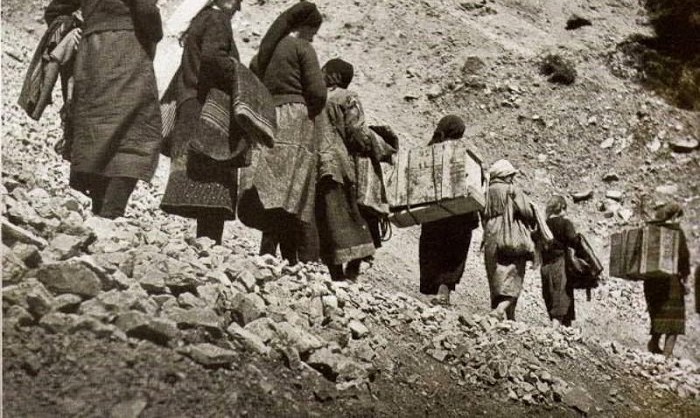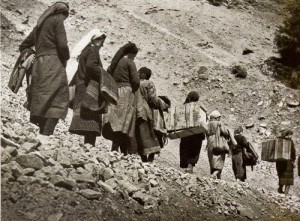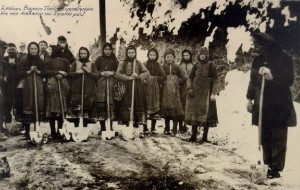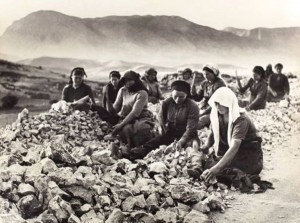Most Greeks know about the golden pages of heroism written by the Greek soldiers in the mountains of Northern Epirus when Greece was called to ward off the Italian attack in 1940.
Many, however, ignore the contribution of Greek women; their voluntary and spontaneous offerings and self-sacrifices, remain a largely unknown side of the war.
Epirus’s women offered their homes to accommodate Greek soldiers; offered food, blankets and all sorts of clothing, and they did not hesitate to give all their supplies of food even to the horses of the army.
They were also known for knitting socks and other clothing to keep Greek soldiers warm during the bitter cold of the Pindus Mountains.
In places where the army could not transport their equipment due to snow or rough terrain, the women helped. There are also many recorded instances where they carried munitions, food and clothing.
Takis Trantas, who fought in the Pindus mountains said in an oral testimony: “These women of Epirus are admirable. They were much admired because they would carry loads where no mules would have gone. They put the loads on their backs, being accustomed to carrying water and wood.”
In his war diary, Argyris Balatsos says: “I have met women carrying ammunition. One of them was 88 years old… The snow, the frost, the terrible cold, didn’t seem to scare them. All of them full of joy wanted to supply the army with what the transport vehicles couldn’t. Truly the miracle of women.”
Climbing on steep ravines, in extremely difficult weather conditions, these heroic women also acted as nurses; carrying the wounded soldiers to safer places.
Women were also helping the Army engineers open and repair roads and bridges.
According to a testimony by Takis Ε. Papagiannopoulos; when the engineers failed to build a bridge over Vogiousa river due to the rushing waters, a group of women entered the water, and holding each other tightly around the shoulders, formed an earthwork that checked the rush of the river, and facilitated the bridge-makers.
There was also at least one recorded incident where Greek women actually fought the Italian invaders in the village of Limni in Epirus, on November 20, 1940.
A group of Italian soldiers had captured around a dozen young women and were taking them to the school of the village when Greek soldiers suddenly appeared. The Italians were surprised by both the presence of the soldiers and the reaction of the women, who using axes and large chunks of wood chased them away. At least ten Italian soldiers were killed and 25 were taken prisoners in this incident.
- – Vassilios Nikoltsios, George Skaltsogiannis and Vassiliou Anastassopoulos, “Images of the 1940s” (Thessaloniki, 2011).
- – www.ime.gr
Source: greekreporter.com








































